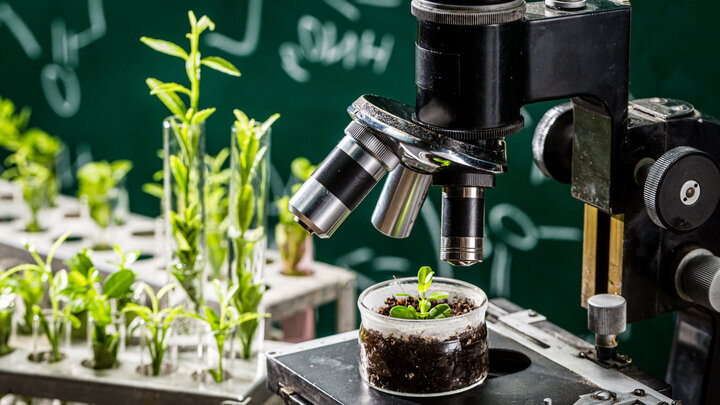Bryson Rader, a University of Nebraska-Lincoln agronomy student, is one of five Yeutter Student Fellows in the Clayton Yeutter Institute of International Trade and Finance’s fellowship program this academic year. With the guidance of faculty and professionals, Rader will have the opportunity to further his knowledge of international trade, network with professionals and peers and produce a deliverable that will give him a professional edge.
Rader is a senior majoring in agronomy and minoring in horticulture, Engler agribusiness entrepreneurship, international agriculture and international trade. He has been involved with the Yeutter Institute since his freshman year, taking classes that cover the financial, economic and political aspects of trade, but he further solidified his involvement in the institute with his international trade minor, which is also overseen by the Yeutter Institute. The fellowship program is a way for him to build upon what he has already learned from the institute and apply it.
Rader’s interests span across industries, and his four minors and participation in the Yeutter Institute allow him to pursue each of them. He enjoys learning about and working in agriculture, but also has an interest in international trade and policy and how they impact farmers.
“I've always been super interested in politics and policy, and specifically how they relate to agriculture because, for example, trade policy dictates farmers' daily lives, like what they're going to be able to buy things for and what they're going to be able to sell their crops for,” Rader said.
Though he does not know what he wants to do upon graduation, Rader knows that his understanding of trade and its intersections with agriculture on a global scale will aid him in whatever agricultural career he ultimately pursues.
“I think it's really important as an upcoming person within agriculture to have an understanding of the global realm as a whole and not just a small focus here in Nebraska,” Rader said.
The fellowship program aims to help students become global and creative thinkers.
As a fellow, Rader will learn from faculty in the Nebraska College of Business, College of Agricultural Sciences and Natural Resources and the College of Law, as well as from industry professionals. Then, he will practically apply the knowledge, research and problem-solving skills gained from the experience to complete an applicable project that should impress potential future employers.
Rader suggests students interested in international trade and policy, even as it relates to agriculture, should get involved with the Yeutter Institute, whether that means taking classes, minoring in international trade or applying for the fellowship program. In addition to the knowledge that can be gained from the institute’s classes, students who immerse themselves in the program benefit from networking and social opportunities.
“It's a great way to immerse yourself into a cohort of people that are all working toward a similar goal,” Rader said.
He suggests that students who want to meet new people while developing professionally consider involvement in the institute, because the networking and learning opportunities found there can prepare students for their future careers.




